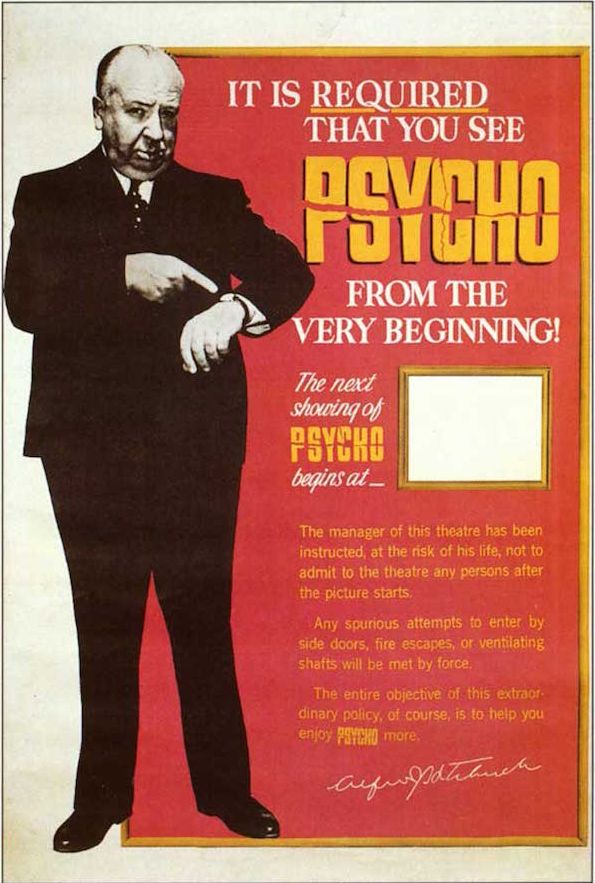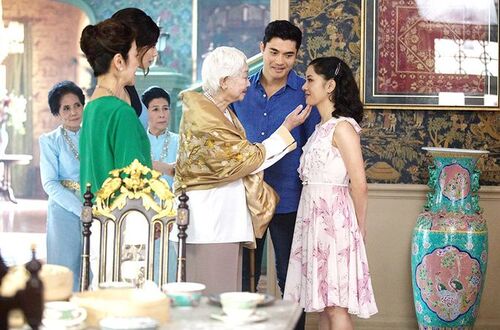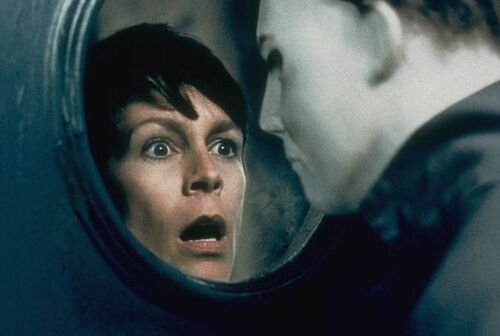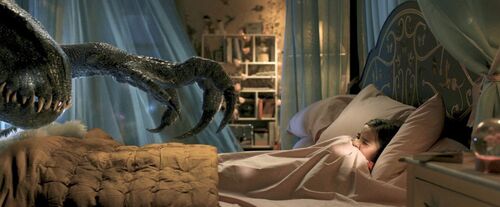
Psycho
To fully appreciate an Alfred Hitchcock film, you need to know films. His film set up genres, created different ways to move the camera, made charm unlike we've seen before and he left a mark on the film world for a reason. All his films had something going for them but Pyscho from 1960 is the one is his filmography to take the most notice of.
Marion Crane (Janet Leigh) emblazes 40,000$ from her employer and has the plan to go up to Fairvale, Calfornia from Phoniex, Arionza to see Sam Loomis, her lover. After stopping at Bates Motel for the night, she meets Norman Bates (Anthony Perkins); owner of the motel who also runs it with his mother. Through it all, we learn more than what appears and that something else is happening at the Bates Motel.
First, this film really started the horror genre. From the plot, it would seem to be not to be though. It deals with embezzlement, a type of mystery and a typical lover runaway story. Norman Bates comes in the picture and it's clear he's got something hiding even if he appears nice. Even more so, the hotel has an eerie vibe and overlooks Norman house. Norman goes through so much rich character development and the last shot of the film basically gives us a final respiration of him that's equally creative and strange. Even with everything that happens to Norman make sense, your head will be spiraling with ideas to how Norman did what he did and what's next for him. Norman is a character you want more even if he is a villain.
So basically one character creates film history and makes a genre of film but more great characters are here other than Norman Bates. Marion Crane is somebody you feel for even if she put herself were she's at. Sam Loomis has a detective mind and breaks this mystery wide open. Your left to wonder who Norman Bates mother is and through the whole film, you actually never get a clear shot of her. As much as in the found footage genre and how in you don't see the monster like in Blair Witch Project, not seeing Norman Bates mother adds suspense and more strangeness to the story.
What's to take even more away from Psycho is how it's shot. Hitchcock uses the camera with such wide shots which for a black and white film is very creative for the times. You have two pretty amazing death scenes that were a lot for the 60's. Even if the death scenes would be nothing nowadays, it was surley something of the 60's. People had never seen anything like it and it had a lot of shock valve.
We talk about Psycho for a lot of reasons but we do tend to forgot the pacing to Psycho. Nowadays, I'm so use to a horror story being short and to the point. Psycho plotlines has a lot of long drawn-out dialogue scenes and long scenes involving Norman at times. Even if really too slow for my taste, it nice to see change. A film willing to take it's time with plot and use acting to make story. A slow-pacing film that's smart with it's plot.
For an average film fan, you can't likely appreciate it. So different from then to now. A type of plot that really could have expand into something and it only makes sense we got three sequels after it and now a current TV series airing now based upon it. One of the mandatory films to watch to study films and the horror world. Likely this is Alfred Hitchcock finest hours and maybe the finest ever to films.



